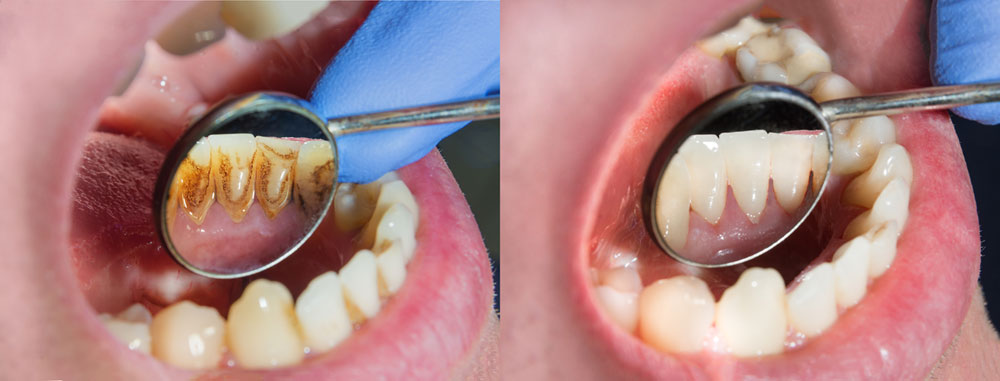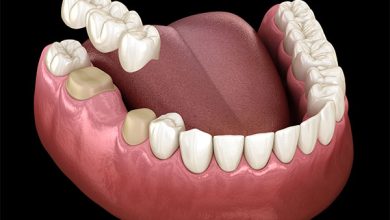How Often Dental Cleaning?

Dental cleaning should be done at least twice a year. Regular dental cleanings are essential for maintaining good oral health and preventing dental problems.
They help remove plaque and tartar buildup, prevent cavities, and detect early signs of dental issues. Neglecting regular dental cleanings can lead to gum disease, tooth decay, and other oral health problems. Prioritizing dental cleanings is crucial for a healthy smile.
Dental Cleaning: What You Need To Know
Regular dental cleaning is essential for maintaining good oral health. It is recommended to have a dental cleaning every six months to keep your teeth and gums healthy. Dental cleaning involves the removal of plaque, tartar, and stains from your teeth, which cannot be removed by regular brushing and flossing. This helps prevent the build-up of harmful bacteria that can lead to gum disease and tooth decay.
Dental cleaning not only improves your oral hygiene but also has several other benefits. It helps in preventing bad breath, as it removes the bacteria that cause it. Moreover, dental cleaning can also help detect early signs of dental issues such as cavities, gum disease, or oral cancer, allowing for timely treatment.
In conclusion, dental cleaning plays a crucial role in maintaining oral health and preventing dental problems. By getting regular dental cleanings, you can keep your teeth and gums healthy and enjoy a beautiful smile.
How Often Should You Get Dental Cleaning?
Regular dental cleaning is crucial for maintaining good oral health. But how often should you get a dental cleaning? The frequency of dental cleanings varies depending on various factors.
Firstly, expert recommendations suggest getting a dental cleaning every six months. This interval allows dental professionals to detect any oral health issues early on and prevent them from worsening.
Secondly, certain factors may require more frequent dental cleanings. For example, individuals with gum disease or a history of dental problems may need to go for cleanings every three to four months. Additionally, smokers, pregnant women, and individuals with weakened immune systems should also consider more frequent cleanings.
It’s important to clear some common misconceptions about dental cleaning frequency. Some people believe that brushing and flossing alone can replace professional cleanings, but this is not true. Professional cleanings remove hard-to-reach plaque and tartar buildup that regular oral hygiene practices may miss.
Insufficient dental cleaning can lead to increased risk of cavities, gum disease, and tooth loss. Neglecting regular cleanings also means that any dental issues that arise may not be caught early on, resulting in more extensive and costly dental procedures down the line.
Personalized Approach To Dental Cleaning Frequency
Personalized Approach to Dental Cleaning Frequency
Regular dental cleaning is an essential part of maintaining good oral health. However, the frequency at which you should get your teeth cleaned may vary depending on your unique circumstances. It is crucial to understand your dental health needs in order to determine the most suitable cleaning schedule.
Assessing your risk factors for oral diseases
Factors such as genetics, oral hygiene habits, diet, and medical conditions can affect your susceptibility to oral diseases. Your dentist will discuss dental cleaning frequency with you to assess your individual risk factors and develop a personalized plan.
Tailoring your dental cleaning schedule
Based on the assessment, your dentist will tailor a cleaning schedule that is appropriate for you. For some individuals, a cleaning every six months may be sufficient, while others may need more frequent cleanings. Maintaining a consistent schedule will help prevent dental problems and keep your smile healthy.
Remember, regular dental cleanings are vital for oral health, but the frequency of cleaning should be determined through an individualized approach that considers your unique needs and risk factors.
Signs That You Need A Dental Cleaning
If you notice any signs of poor oral health such as bad breath, swollen or bleeding gums, or tooth sensitivity, it may be time for a dental cleaning. Plaque and tartar buildup are common culprits of these symptoms. Plaque is a sticky film that forms on the teeth and contains bacteria. If not removed regularly, it can harden into tartar, which can irritate the gums and lead to gum disease.
Regular dental cleanings are essential for maintaining good oral health and preventing dental emergencies. During a dental cleaning, a dental hygienist will remove the plaque and tartar from your teeth and gums, reducing the risk of gum disease and tooth decay. Additionally, dental cleanings can help detect any underlying issues early on, preventing them from worsening and requiring more extensive treatment.
By scheduling regular dental cleanings, you can keep your teeth and gums healthy and minimize the need for more invasive dental procedures in the future.
Tips For Maintaining Oral Health Between Dental Cleanings
Regular dental cleanings are a vital part of maintaining good oral health. However, you also need to take proper care of your teeth and gums between dental visits. This involves using the right techniques for brushing and flossing daily. Brush your teeth twice a day using a soft-bristled toothbrush and fluoride toothpaste. Make sure to brush each tooth and reach all areas of your mouth. Floss daily to remove plaque and debris from between your teeth, using a gentle back-and-forth motion. It is also important to choose the right oral care products such as toothbrushes, toothpaste, and floss that suit your needs. Additionally, using a mouthwash can help kill bacteria and freshen your breath, while interdental cleaning aids, such as interdental brushes or dental picks, can help clean hard-to-reach areas. Furthermore, you can take additional preventive measures like avoiding smoking, maintaining a healthy diet, and staying hydrated to support your oral hygiene and overall health.

Credit: www.holisticsmilecare.com
Dental Cleaning: What To Expect During The Appointment
Dental Cleaning: What to Expect During the Appointment
During a dental cleaning appointment, you can expect a thorough and professional cleaning of your teeth. The process typically involves the following steps:
- Visual examination: The dentist will visually inspect your teeth, gums, and overall oral health.
- Plaque and tartar removal: Using special tools like scalers and curettes, the dental hygienist will gently remove plaque and tartar from your teeth and along the gum line.
- Teeth polishing: After plaque and tartar removal, your teeth will be polished using a rotating brush and a gritty toothpaste-like substance to remove surface stains.
- Fluoride treatment: A fluoride gel or foam may be applied to protect your teeth from cavities.
Throughout the procedure, the dental team will address any concerns or fears you may have. They will explain each step and ensure your comfort throughout the process. After the cleaning, they will provide you with post-cleaning care instructions and recommendations, including proper brushing and flossing techniques and the importance of regular dental check-ups. Remember, regular dental cleanings help maintain good oral health and prevent dental problems in the future.
Affordable Ways To Access Dental Cleaning Services
When it comes to maintaining good oral hygiene, regular dental cleaning plays a vital role. Dental cleaning not only helps in preventing dental issues but also contributes to overall health. There are several affordable ways to access dental cleaning services:
| Dental Insurance Coverage | Out-of-Pocket Costs | Government Programs and Resources | Non-Profit Organizations |
|---|---|---|---|
| Many dental insurance plans cover dental cleaning as a preventive service. Be sure to review your insurance policy to understand the coverage details. | If you do not have dental insurance, you might be concerned about the out-of-pocket costs. However, there are clinics and dentists that offer affordable rates for dental cleaning sessions. | There are government programs and resources available that offer dental cleaning assistance, especially for low-income individuals and families. These programs vary by country and region, so it’s worth exploring the options in your area. | Non-profit organizations dedicated to providing affordable dental care services can be a great resource. They often have clinics or partnerships with dentists who offer reduced-cost or free dental cleaning. |
Regular dental cleaning not only helps in maintaining oral health but is also cost-effective in the long run. Explore the options mentioned above to access affordable dental cleaning services and ensure a healthy smile.
Frequently Asked Questions On How Often Dental Cleaning?
How Often Should You Go For Dental Cleaning?
It is recommended to go for dental cleaning every six months to maintain good oral hygiene.
Do You Really Need Teeth Cleaning Every 6 Months?
Yes, teeth cleaning every 6 months is necessary for maintaining oral health and preventing dental problems. It helps remove plaque, tartar, and stains that brushing alone cannot eliminate. Regular cleanings also allow dentists to detect issues early on, resulting in less invasive and more cost-effective treatments.
Is Teeth Cleaning Every 3 Months Too Much?
Teeth cleaning every 3 months is not too much. Regular cleanings every 3-6 months help prevent dental problems and promote oral health.
Is Dental Cleaning Once A Month Too Much?
Dental cleaning once a month is not too much. Regular cleanings help prevent cavities, gum disease, and maintain oral health. Visit your dentist at least twice a year for professional cleanings and discuss individual needs with your dentist for personalized recommendations.
Conclusion
Regular dental cleanings play a vital role in maintaining optimal oral health. By scheduling dental cleanings every six months, you can prevent the buildup of plaque and tartar, which can lead to gum disease and tooth decay. Additionally, dental cleanings allow for early detection of any potential dental issues, ensuring prompt treatment and avoiding costly procedures in the future.
Take charge of your oral hygiene and make regular dental cleanings a priority for a healthy and confident smile.





